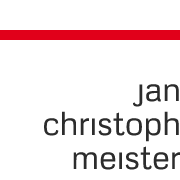Story Generators
In cooperation with: Rolf D.Krause, Birte Lönneker (to 6/09), Stefanie Thiedig (to 5/06) and Lisa Stremlau (5/06-5/07), Evelyn Gius (6/09-12/09) The formulation of generative Story Grammars was one of the principle aims of Structuralist Narratology from the mid-1960s onward. However, since Post-Structuralism and as a consequence of the general re-orientation of Narratology towards contextualist and cognitivist paradigms the idea of formulating universal Story Grammars is no longer considered feasible and in fact methodologically suspect. By contrast, Story Grammars continue to play a vital role in Cognitive Science and AI-based attempts to model human ‘Narrative Intelligence’ (including Interactive Fiction research). Story Grammars are often integrated into generative systems in the form of a Story Generator Algorithm (SGA) that communicates with other components. Our project investigated the narratological relevance of such approaches, analysing and interpreting computational SGAs as test-beds for narratological theorems as well as a general heuristics for the investigation of formal features of narratives. The model was presented among other in our article “Story Generators: Modells and Approaches for the Generation of Literary Artefacts” 1):  The “Story-Generator-Algorithms” project was part of the German Research Foundation (DFG) and University of Hamburg financed Forschergruppe Narratologie which preceeded the current Interdisciplinary Center for Narratology (ICN) at Hamburg University. More detailed information on the project is available in the Project Archive. 1) Birte Lönneker, Jan Christoph Meister, Pablo Gervás, Federico Peinado and Michael Mateas (2005): “Story Generators: Models and Approaches for the Generation of Literary Artefacts.; in: ACH/ALLC 2005 Conference Abstracts. Proceedings of the 17th Joint International Conference of the Association for Computers and the Humanities and the Association for Literary and Linguistic Computing, Victoria, BC, Canada, June 15-18, 2005. 126-133.
The “Story-Generator-Algorithms” project was part of the German Research Foundation (DFG) and University of Hamburg financed Forschergruppe Narratologie which preceeded the current Interdisciplinary Center for Narratology (ICN) at Hamburg University. More detailed information on the project is available in the Project Archive. 1) Birte Lönneker, Jan Christoph Meister, Pablo Gervás, Federico Peinado and Michael Mateas (2005): “Story Generators: Models and Approaches for the Generation of Literary Artefacts.; in: ACH/ALLC 2005 Conference Abstracts. Proceedings of the 17th Joint International Conference of the Association for Computers and the Humanities and the Association for Literary and Linguistic Computing, Victoria, BC, Canada, June 15-18, 2005. 126-133.
